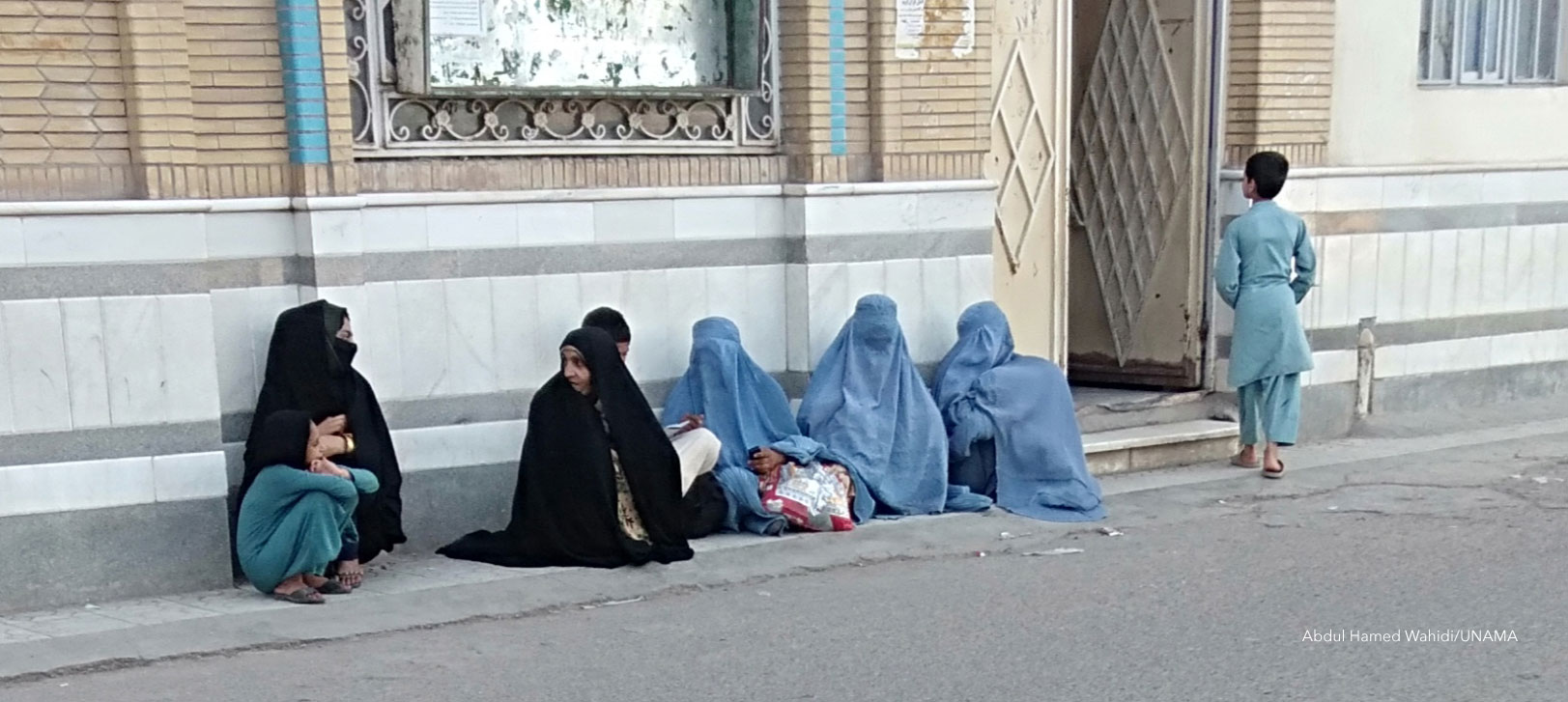OPINION

The casualties of the Taliban's war against women are stacking up
The world must stop gambling with afghan women's rights
By Palwasha Hassan
Co-founder, Afghan Women Network
Senior Fellow, Georgetown Institute for Women, Peace, and Security
May 19, 2022
Since last August, the Taliban has turned the clock back to its brutal rule in the late 1990s, rolling back decades of advancements for women across the country. The latest restriction – mandating women wear head-to-toe covering in all public spaces – adds to the grim situation for Afghan women and girls. The Taliban has already impeded work conditions, barred school for girls after sixth grade, and imposed strict requirements on women’s mobility. This week, the Taliban dissolved the country’s Human Rights Commission (AIHRC) and the High Council for National Reconciliation (HCNR), continuing its serious and systematic erosion of human rights.
The Taliban’s decree on women’s clothing – to be strictly enforced by male heads of households – is an alarming sign of systemic gender oppression and a brutal assault on women’s fundamental freedoms. It perpetuates cycles of inequality within the family and for generations to come, with young boys taught to accept the subjugation of women and girls. And it paves the way for increased domestic violence in an already volatile situation on the ground.
This is happening while the country is suffering from an unprecedented humanitarian crisis, an economy in freefall, and a security situation that is deteriorating by the day. Unnecessary restrictions in an overwhelmingly traditional and patriarchal culture are stripping away the autonomy and very existence of Afghan women in society.
These misogynistic policies are not without consequences. According to recent estimates, cumulative restrictions on women’s employment can cause an immediate economic loss of up to USD 1 billion – up to five percent of Afghanistan’s GDP – along with impairment to the health, psyche, and well-being of women trying to cope with unbearable living conditions. Such policies condoning the use of violence to subordinate Afghan women can also lead to radicalization, destabilization, and country-wide instability – a threat the global community should not take lightly.
Last week, the UN Security Council met to discuss the new decree, and G7 Foreign Ministers issued a harsh condemnation of the imposed restrictions. However, statements and closed-door conversations must be met with urgent action. Measures include:
- Call for the immediate implementation of UNAMA’s mandate to promote and protect women’s rights. The mission should engage with the Taliban to ensure adherence to international human rights instruments, and report back to the international community on implications for women’s rights.
- Engage regional and Muslim countries: Prominent Islamic countries such as Qatar, hosting Taliban peace delegates; regional governments that have influence and close political engagement with the Taliban; and multilateral bodies like the Organization of Islamic Cooperation (OIC) should support the call of Afghan women for dignity, respect, and equal opportunity within progressive Islamic culture.
- Authorize a joint political mission, including Islamic and regional countries, OIC representatives, and Afghan women leaders, to assess the situation of human rights and women’s rights in the country.
- Sanction Taliban leaders’ travel and financial assets: The international community should impose financial and travel sanctions on Taliban leaders and their families to cut off their access to the region and the world. Measures should be lifted according to concrete positive changes in Taliban behavior, including reopening secondary schools to girls and enabling women to fully participate in work and public life.
- Condemn the decree based on Islamic principles. The Taliban’s justification for imposing the degree constitutes a hijacking of Islam to serve their abhorrent political goals. Muslim scholars and religious leaders should denounce these restrictions as antithetical to Islam.
- Target financing and international aid to women-led civil society organizations, particularly for education, health, and entrepreneurship, to ensure their continued ability to deliver humanitarian provisions and advocate for the restoration of women’s rights.
We must go with the pace of reform, inclusion, and progress – like any other progressive Islamic nation – and ensure the fallback of women’s rights and mobility does not impede our progress. Afghanistan’s social and economic stability, and dignity as a nation, depends on it.a
